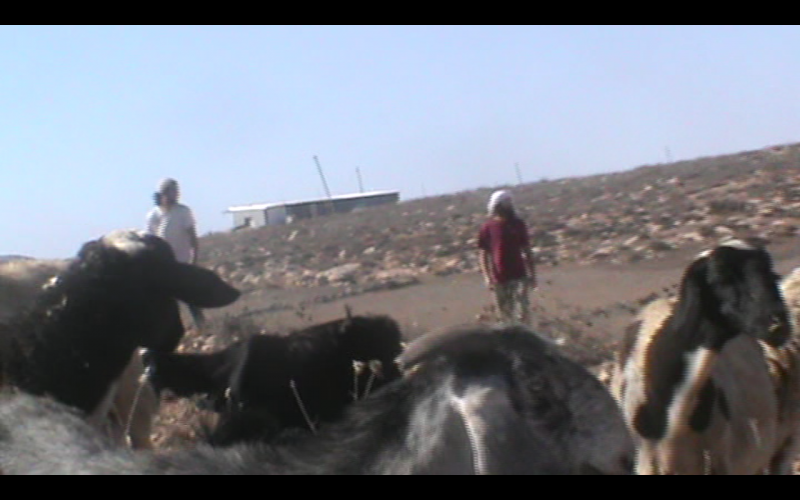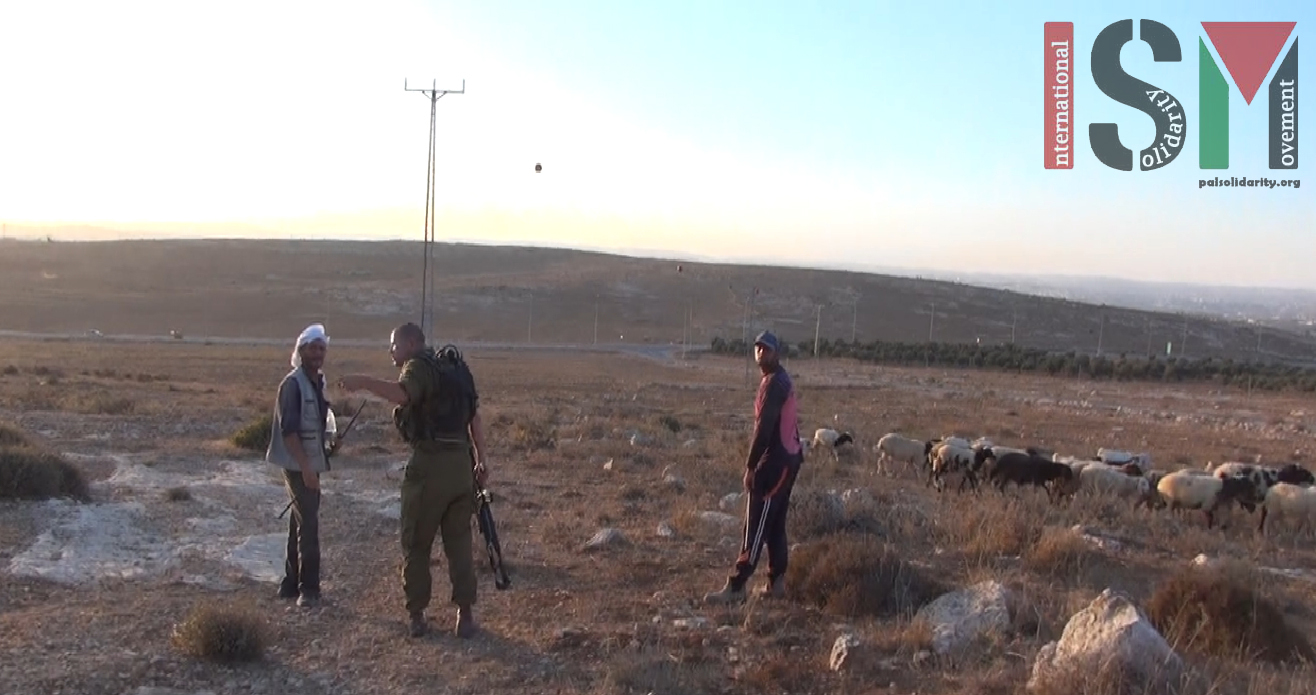Tag: Qawawis
-
Israeli settlers attacked internationals and a Palestinian shepherd
15th September | Operation Dove | At Tuwani On September 14th, two Israeli settlers attacked a Palestinian shepherd and two international near the Israeli outpost of Mitzpe Yair, in the South Hebron Hills area. During the aggression, the settlers stole video cameras from the internationals and broke one of their phones. Israeli police detained the…
-
Shepherds detained for crossing a road
26th August 2014 | International Solidarity Movement | Qawawis, Occupied Palestine While shepherding approximately 1 km south of Qawawis, a village south of al-Khalil (Hebron), on Sunday 24th near the illegal settlement and army base of Suseya, three shepherds were stopped by the Israeli army and detained for 20 minutes. The three shepherds were just on their way back…
-
Plan for the Olive Harvest Campaign 2006
On the 5th of October a special meeting made up of regional ISM coordinators took place to present their plans for the olive harvest and to make everyone aware of each other’s activities so that better coordination between the regions can take place. Below is a summary of each region’s activities to give an idea…


